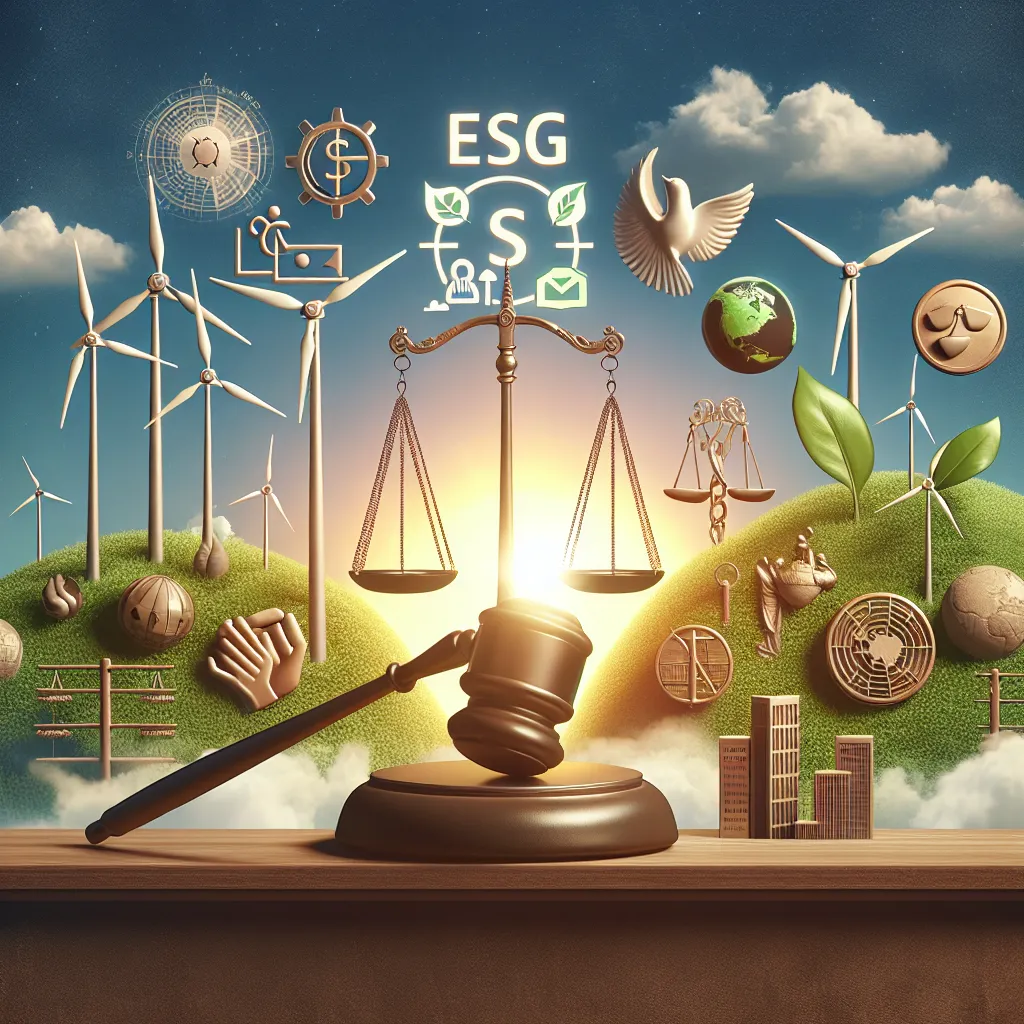Will responsible investing become a trend in the post-coronavirus reality?

- Responsible Investing: How has the pandemic changed global financial markets?
- How has the pandemic changed approaches to investment and sustainability?
- What are the prospects for responsible investment in Russia?
Responsible investing in a pandemic
While the global economy was experiencing significant fluctuations due to the COVID-19 pandemic, 2020 marked an astonishing milestone for responsible investing. The summer months were marked by a landmark event: for the first time in history, the amount of assets managed by ESG-guided funds exceeded USD 1 trillion. The first retail mutual funds based on the concept of responsible investment appeared in Russia during the same period. This raises the question: will this trend become key in the new post-pandemic reality and is it of interest among Russian investors?
What is responsible investing?
Responsible investing suggests that capitalists choose companies that operate according to certain ethical standards. This can include a variety of characteristics such as:
- Reducing the level of environmental pollution;
- Equal gender representation in leadership positions.
The key aspects that determine the choice to invest responsibly are ESG factors. ESG stands for:
- Environmental(Environmental);
- Social(Social);
- Managerial(Governance).
Increased interest in ESG during a pandemic
During the pandemic, there was a growing interest in the concept of responsible investing. ESG funds raised unprecedented amounts of capital in the second quarter of 2020. They recorded higher returns than traditional funds over the same period. According to a study by investment bank Morgan Stanley, the median return for ESG funds was higher by3.9%compared to less stable peers. In the bond fund category, ESG bond yields for the first six months of 2020 were on a2.3%is higher than that of conventional funds.
Growth in the number of ESG funds in Europe
From the end of March 2020 to the end of the second quarter, the number of funds in Europe that take ESG principles into account when constructing their portfolios increased by4%having reached2703. Expert market analysts believe that the COVID-19 pandemic has prompted investors to pay attention to companies that emphasize not only financial profit, but also the overall good of the planet. The pandemic has forced society to reconsider many factors of life related to the following, for example:
- The state of health care;
- Serving the elderly;
- The role of education;
- The impact of tourism.
Long-term changes and trends
Swiss financial organization UBS assumes that the changes caused by the pandemic will determine the main trends in responsible investing for a long time. It should be noted that European fund managers are also beginning to actively pay attention to companies that are not indifferent to their social and environmental responsibility. This approach may radically change the usual perception of financial markets and their regulation, encouraging companies to comply more deeply with ESG principles, which will affect all new areas of the economy.
Conclusion
Thus, responsible investing is no longer just a trend, but an important necessity arising from today's global realities. It is likely to remain at the center of investors' attention both in Russia and abroad. It will not only be a profitable but also an ethically sound choice for those seeking to build a sustainable future. Applying these principles can significantly change investment approaches, influence business strategies and ultimately lead to a better quality of life on our planet.
Impact of the pandemic on investment approaches
The isolation in which much of the population spent long periods of time has led investors to look more closely at the social and governance aspects of ESG, including working conditions in organizations. Previously, good corporate governance was seen as a nice-to-have but not a key component. However, in times of pandemic, its impact on companies' financial performance has become clear.
Effective corporate mechanisms, employee cohesion and the ability to quickly adapt to changing conditions have become determining factors for successful interaction with customers and partners during the time of strict self-isolation measures.
Investments in social projects
Investing in social projects such as:
- Improving accessibility of health services,
- of medication,
- implementation of digital technologies,
which would allow many regions to continue training, would definitely affect the company's image and increase its competitiveness.
Environmental aspects and environmental pollution
In addition, the pandemic has emphasized the importance of pollution issues. According to a study published in the journal Nature, CO2 emissions in the first six months of 2020 decreased by 8.8% compared to the same period of the previous year. In parallel, the World Health Organization is investigating a possible relationship between air quality and the severity of COVID-19 in infected people.
These factors are forcing investors to reconsider their approaches to environmental criteria when making investment decisions.
Environmental sustainability in real estate
The real estate industry is seeing an increasing interest in the sustainability of buildings from an environmental perspective. In the new post-pandemic world, ESG factors are becoming critical, as experts from the auditing company KPMG emphasize in their latest research.
Experts note that property owners and managers need to adapt to the trend of responsible investment in order to remain competitive in the market.
9 October 2024
29 September 2025
29 January 2025
29 January 2025
9 October 2024




- Availability of proximity doors and elevators,
- green areas,
- support for local businesses.
Trends in energy saving
Energy-efficient construction solutions are becoming an important component of responsible investment in Russian practice. According to Artem Sedov, Commercial Director of an international real estate brokerage company, Russian investors are showing increased interest in energy saving projects because of their economic benefits.
The availability of such infrastructure solutions not only reduces operating costs, but also meets today's societal demands for sustainable development and environmental protection.
Conclusions
As a result, the changes brought about by the effects of the pandemic are not only affecting the way businesses are managed, but also entire sectors of the economy, including the real estate market, where environmental and social aspects are becoming critical to the future success of organizations.

Russian-speaking audiences are beginning to develop concerns about European environmental initiatives. This is due to the fact that many of these projects turn out to be insufficiently clear, and also require significantly higher investments than traditional investments.
Expert opinion
Sedov, a finance expert, notes that for Russian investors, the use of green technologies is often perceived as a burden, which can have a negative impact on potential returns. The coronavirus pandemic demonstrated how unsatisfactory outdated forecasting models can be, and also highlighted the risks for those who turn a blind eye to environmental issues. These are the conclusions of the investment bank J.P. Morgan, based on a survey conducted in July 2020 among representatives of fifty companies around the world.
Dynamics of interest in responsible investment
According to this survey, more than half (55%) of respondents are convinced that we will see an increase in interest in responsible investing in the next three years as a result of the impact of the pandemic. However, the costliness of investment management and mistrust on the part of potential investors remain serious barriers to this. There are many barriers discouraging investors from moving towards more responsible practices.
- High asset management costs;
- Uncertain Risks;
- Limited choice of high-yield strategies due to insufficient number of ESG funds.
The idealistic approach and its complexities
It is also worth noting the idealistic nature of the approach, which may discourage some investors. Investments that take into account non-financial results require careful analysis and can lead to possible losses, and not everyone has the willingness to accept such risks. PwC's 2019 survey found that the main barriers to sustainable investment in Russia are:
- Lack of a mature investment culture;
- Lack of comparable statistical data;
- Low customer interest.
The moral dilemmas of investing
Another challenge is to find profitability that is ethical. When analyzing the business models of individual companies, investors may be faced with difficult moral choices, such as investing in a firm that produces harmful chemicals but demonstrates excellent social responsibility and good working conditions for its employees.
Disadvantages of responsible companies
It should also be taken into account that many organizations that position themselves as socially responsible often fail to live up to expectations. A striking example of this was the Volkswagen scandal, when the company repeatedly understated the emissions of its cars.
New opportunities for responsible investment in Russia
Nevertheless, new opportunities for responsible investment are gradually beginning to emerge in Russia. Despite skepticism, the ESG concept is gaining supporters. In May 2020, VTB initiated the creation of the first retail mutual funds linked to responsible investment.
This step is not surprising given the growing interest of Russian investors in such initiatives. Such activities can catalyze a new investment culture and broaden awareness of the importance of environmental and social factors in financial decision-making. This, in turn, could lead to an increased flow of investment into sustainable development and environmentally-oriented sectors. Thus, despite the existing challenges and difficulties, responsible investment in Russia has every chance to grow and mature in the future.
Conclusion
Concluding the discussion on the topic of responsible investing in the context of the post-pandemic reality, I would like to emphasize the key points that make this trend particularly relevant to today's environment. ESG principles that signify environmental, social and governance sustainability are becoming not just a choice, but a necessity for investors.
The COVID-19 pandemic has really pushed many companies and private investors to realize the importance of socially responsible behavior and sustainability.
Key points
- Growing interest in ESG funds:With each passing day, there is a growing realization that investing in companies that care about their environment and humanity not only contributes to a better world, but can also serve as a reliable means of capital protection.
- Pandemic as a catalyst for change:Having observed the increased popularity of ESG funds, it is safe to say that these investments are not a temporary trend.
- Emergence of retail mutual funds:The emergence of retail mutual funds for responsible investment in Russia is further evidence of the rising popularity of this asset category.
As global challenges become more pressing, criteria such as reducing carbon emissions, caring for employee health and supporting nature are gaining importance that can affect companies' financial results. Not surprisingly, experts predict a growing interest in environmentally friendly and socially responsible real estate projects, as consumers demand more transparency and ethics from brands.
Finally, it is worth noting that investing in sustainable and socially responsible companies not only strengthens their market position, but also creates a positive image in the eyes of society. Against this background, as a Russian investor myself, I am experiencing a revolution in the way I approach asset selection. Responsible investing is not just interesting - it requires special attention and an active stance. It is this movement that will ultimately help us build a more sustainable and prosperous future.
Comment
Popular Posts
9 October 2024
9946
29 September 2025
398
29 January 2025
1540
9 October 2024
1487
Popular Offers

Subscribe to the newsletter from Hatamatata.com!
Subscribe to the newsletter from Hatamatata.com!
I agree to the processing of personal data and confidentiality rules of Hatamatata










